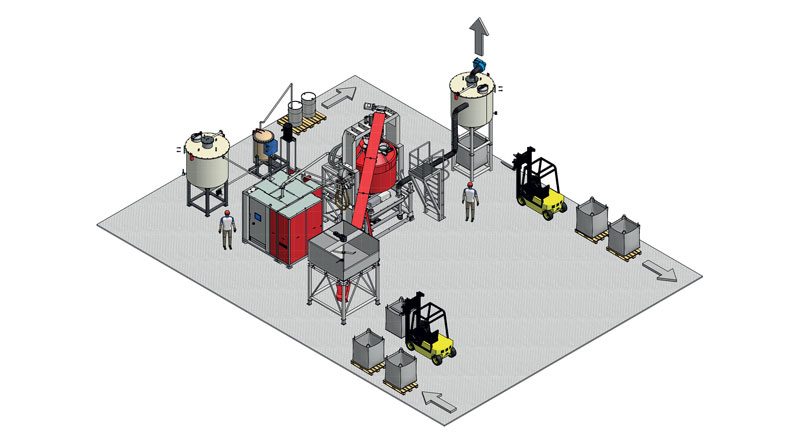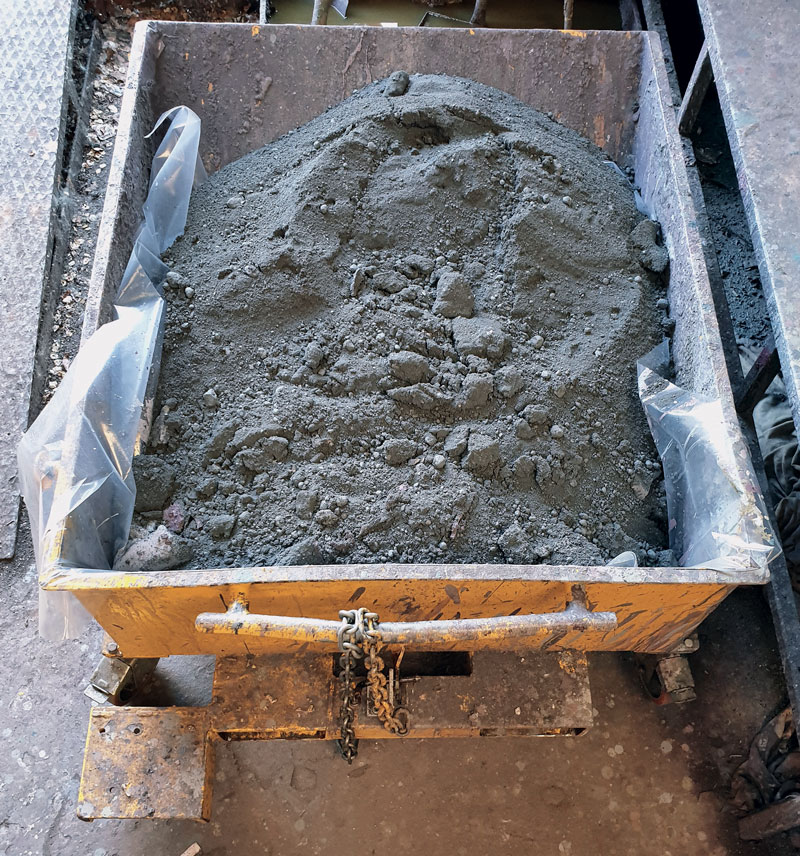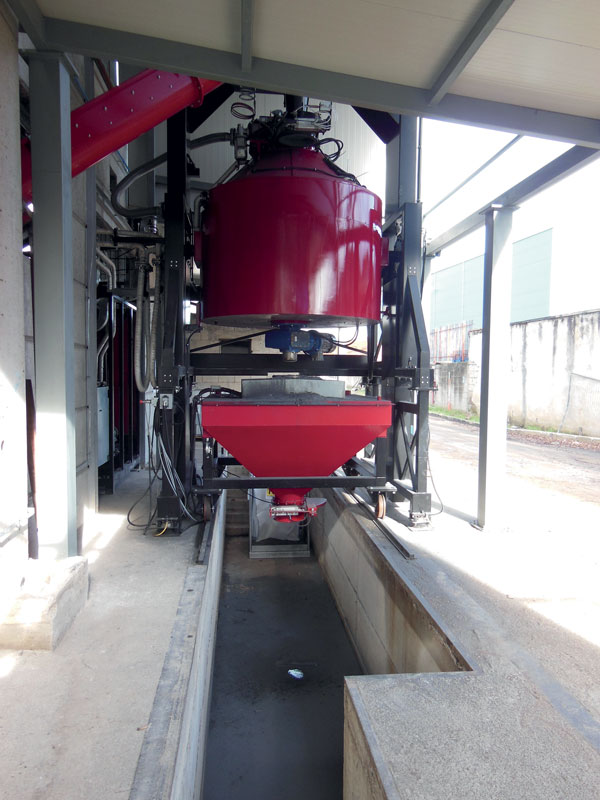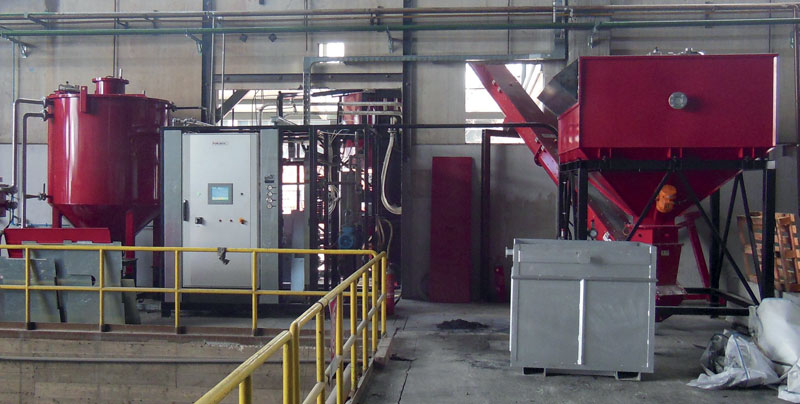Recovery units for rolling fluids and filtration earths
The fractional distillation units designed by Formeco allow almost total recovery of the rolling oils used in the production of aluminium foil
Rolling fluids are necessary for different industrial processes. One of the most common ones is that for the production of aluminium strips and foil. In metalworking, rolling is a metal forming process in which metal stock is passed through a pair of cylinder. Cold rolling is performed by mills with the technology of four superimposed cylinders which impress in the material the desired shape, turning on themselves. The aluminium strip is then rolled in different passes, with an average thickness reduction of 50% at every single step. The units are equipped with advanced control systems which verify both thickness and flatness of the foil. The same systems also monitor the variations of nominal reference values and automatically regulate the rolling mill operation parameters. This part of the process requires low viscosity lubricants like mineral oils, emulsions, paraffins and greasy oils. The final step, on the other hand, uses the rolling oils for lubrication and for thickness regulation as well. These oils, of isoparaffinic base, are characterized by a high boiling point, and get contaminated during their use with colloidal aluminium and hydraulic lubricant oils of the rolling mill. In the final phase of the production process the degreasing takes place (with baths which contain aqueous solutions with acid or alkaline degreasing products and surfactants) and next a rinse with demineralised water. Subsequently comes the “squeezing” phase of the foil, which is obtained by the passing of the substance through rubber-coated rollers in order to eliminate the bigger part of the washing product from the surface, which is then rinsed in different baths with demineralised water. Thereafter, the foil passes through a hot air-drying tunnel where it is completely dried from any liquid residue. The saturated rolling oil used in the final phase of the millwork can be treated by distillation, this way avoiding the expensive disposal and, at the same time, having the possibility of recovering the lubricant for the following production phases, thus obtaining great savings on purchasing costs.
Fractional separation systems by Formeco
Formeco, located in Noventa Padovana (Padua) and specialized in the production of solvent recovery systems and waste water evaporators, designs and supplies fractional distillation systems for the recovery of rolling oils. These are fractional distillation units, which allow the distillation of solvents with different boiling points and the almost total separation of solvents from liquid pollutants. The fractional distillation process makes possible to obtain a pure enough liquid for its integral reuse in its original processes. The plant consists of a boiler heated indirectly by diathermic oil or different energy sources (steam, for example). The diathermic oil is placed in forced circulation inside an external shell around the boiler and in an inner coil. At the same way the steam circulates in the external shell and inside the inner coil. A fractionating column fitted with anti-splash devices and high-efficiency packing material is installed in the upper part of the boiler in order to favour washing in the steam-liquid counter-flow. The reflux consists of a stream of liquid that falls to the bottom, inside the column, in countercurrent to the vapours rising upward. The reflux current prevents the rise in column of all of the heavy fractions which contaminate the processing solvent. A head condenser makes it possible to regulate the forced reflux in the column in order to support the separation of the various components of the mixture being treated. The column contains a filling material. This material allows to “selecting” the distillate. During the process the filling material is crossed by a rain of solvent named “reflux” which allows the “washing” of the rising vapours, increasing their purity. Formeco goes beyond allowing the cleaning and reusing of the contaminated rolling fluids, it also allows the treatment of filtration earths, which are present in the aluminium rolling process. Filtration earths are utilized for the filtration of the lubricating oil, normally composed by 95% of kerosene and 5% of a mixture of different alcohols. The purpose of dryness of these earths is to recover the lubricant by means of a distillation process. The recovered fluid will have the same chemical/physical characteristics of the original product, and it will be pure enough to be reusable in the production process. The filtration earths are composed by a mixture of diatom earths and whitener earths. By means of a special distillation unit, heated by a circuit of thermal oil or by a steam boiler, these earths are heated in order to extract the volatile components (kerosene and alcohols), free of any residual powder. The machine is equipped with an inner scraper which keeps the product in constant movement, allowing the total stripping of the solvents. An average recovery of hydrocarbon solvents from the filtration earths is normally about 30 % in weight. As a matter of fact, this specific treatment improved by Formeco, ensures a very high level of experience and the guarantee of success.
